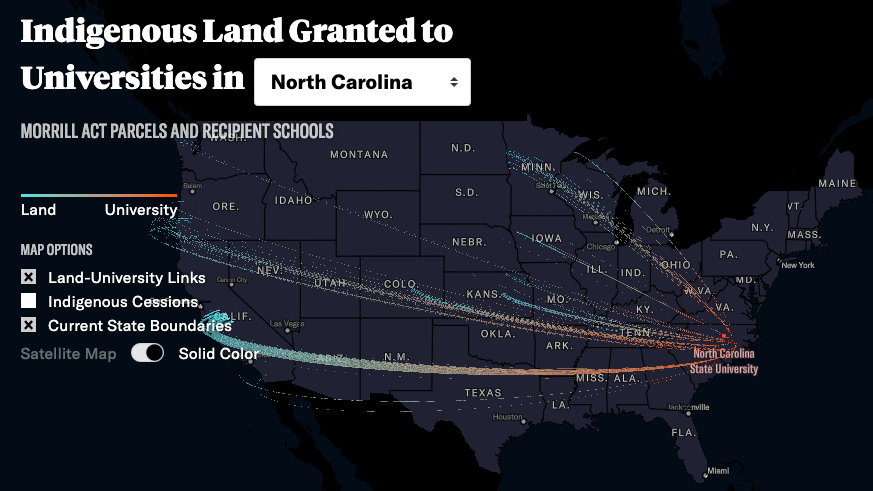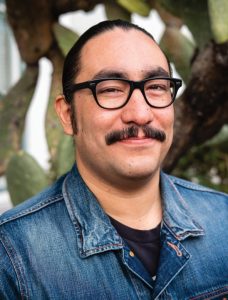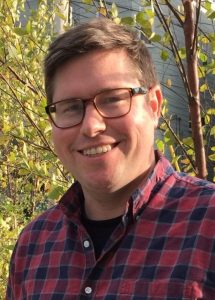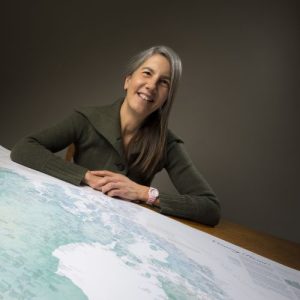Land-Grab Universities: How the Morrill Act funded land grant universities by taking Indigenous lands

In 1862, President Abraham Lincoln signed the Morrill Act, which turned nearly 11 million acres of land expropriated from tribal nations into seed money for land grant universities.
This November, join NC State for two days of events exploring the award-winning investigative story, “Land-grab universities,” including a virtual keynote by authors Tristan Ahtone and Robert Lee. Learn about the history of land grant universities, as well as the data journalism tools that made this groundbreaking project possible.

1st Event: November 10, 2022, 3-4PM
Land-Grab Universities
- Location: Virtual
- Join keynote speakers Tristan Ahtone and Robert Lee as they discuss the funding of land grant universities through Indigenous land dispossession, and ways that universities are responding to their findings.
MODERATED BY DR. KWESI BROOKINS, VICE PROVOST FOR OUTREACH AND ENGAGEMENT AT NC STATE UNIVERSITY.
Keynote speakers:
TRISTAN AHTONE

Tristan Ahtone is a member of the Kiowa Tribe and is Editor at Large at Grist. He previously served as Editor in Chief at the Texas Observer and Indigenous Affairs editor at High Country News. He has reported for Al Jazeera America, PBS NewsHour, National Native News, NPR and National Geographic. Ahtone’s stories have won multiple honors, including investigative awards from the Gannett Foundation and Public Radio News Directors Incorporated. He additionally led the High Country News team that received a George Polk Award, an IRE Award, a Sigma Award, a Society of News Design Award and a National Magazine Award nomination. A past president of the Native American Journalists Association, Ahtone is a 2017 Nieman Fellow and a director of the Muckrock Foundation.
ROBERT LEE

Robert Lee has a PhD in History from the University of California, Berkeley, an MA in American Studies from the University of Heidelberg. Before joining the Cambridge faculty, he was a junior fellow at the Harvard Society of Fellows. His articles and digital scholarship on the relationship between Indigenous dispossession and US state formation in the American West have received awards from the American Historical Association, the Organization of American Historians, the Western History Association, the Society for History in the Federal Government, and others. He is currently writing a book on US expansion into the Louisiana Purchase and stewarding a digital mapping project tracking the historical creation of real estate on the US public domain.
____________________________________________________________________________________
2nd Event: November 10, 2022, 7:00PM
Higher Education Land Acknowledgement Panel Discussion
In Spring 2021, NC State’s Native American Student Association (NASA) and Student Government Association (SGA) passed a land acknowledgement for NC State University. Land acknowledgments are statements by institutions to recognize the impact their institution has had on Indigenous communities. Statements are first steps in improving the access and success of Native students as well as supporting Indigenous faculty and staff.
The American Indian Advisory Council (AIAC), comprised of representatives from across NC State, have been researching and developing a land acknowledgment for campus the last four years. Partnering with NASA, AIAC and OIED are putting forward a land acknowledgement to SGA, Faculty Senate, and Staff Senate to have an approved land acknowledgement. This panel discussion will highlight the advocacy and experiences of Native students on campus and the land acknowledgement movement in higher education.
- Location: Talley Student Union, Room 4140 (Governance Chamber)
- Panelists
- Tristian Ahtone
- Dr. Brian Peters
- Honiah Locklear
- Nathan Campbell
- Lee Tartaglia
- McKenzie Cummings
____________________________________________________________________________________
3rd Event: November 11, 2022, 9:30-10:30AM
Keynote presenter: Margaret Pearce
Coffee & Viz: Mapping Land-Grab and Next

- Location: Teaching and Visualization Lab, James B. Hunt Jr. Library
- Join Margaret Pearce, Citizen Potawatomi tribal member and cartographer living on Penobscot homelands in Maine. She sees cartographic language as a powerful mode of graphic expression complementary to writing and speech, where narratives and dialogues across cultures and between viewpoints can be explored and new possibilities given room to emerge and flower, in particular for the expression of Indigenous geographies. She holds a Doctor of Philosophy degree in Geography and taught courses in cartographic history, theory, and practice as a geography professor for 15 years. Margaret Pearce is a 2022 National Geographic Wayfinder Award recipient.
- Learn about the Land-Grab Universities project and the maps/graphs created display how Indigenous lands were expropriated to fund land-grant universities across the nation.
- Access the event page here.
____________________________________________________________________________________
4th Event: November 11, 2022, 1:30-2:30pm
Poe Hall 742
Land-Grab Universities Roundtable Discussion: Reckoning with the Past to Build the Future of Education
Following two days of events exploring the award-winning investigative story, “Land-grab universities,” the College of Education’s Student Services and Advising Center (SSAC) will host our special guests Tristan Ahtone and Margaret Pearce for a roundtable discussion about the authors’ approach to inquiry and how educators can use similar tools in the classroom to teach about critical topics. Participants are encouraged to attend the keynote and/or data visualization event or to read about the project ahead of the discussion. The session will be facilitated by Dr. Meghan Manfra, Professor of Teacher Education and Learning Sciences.
____________________________________________________________________________________
Co-sponsors of these events:
- Academic Advising Programs & Services, Division of Academic & Student Affairs
- College of Education
- Department of English
- NC State University Libraries
- Office for Institutional Equity and Diversity
- Office of Multicultural Student Affairs
- SE Climate Adaptation Science Center
- University Advising Partnerships & Services
- University Outreach and Engagement
To learn more about the history of land-grant institutions and what these universities are doing about it today, please see the resources below.
- Categories:
